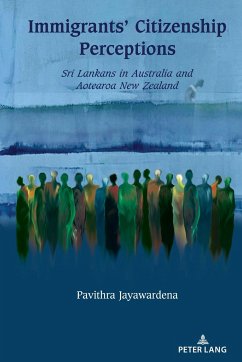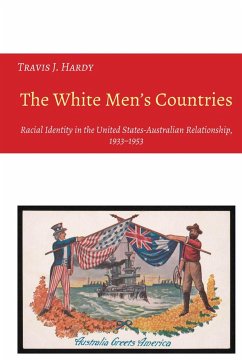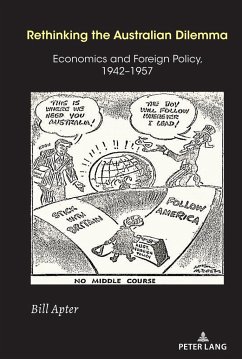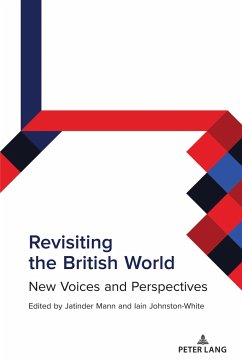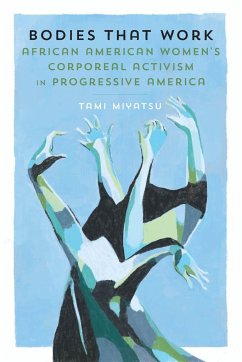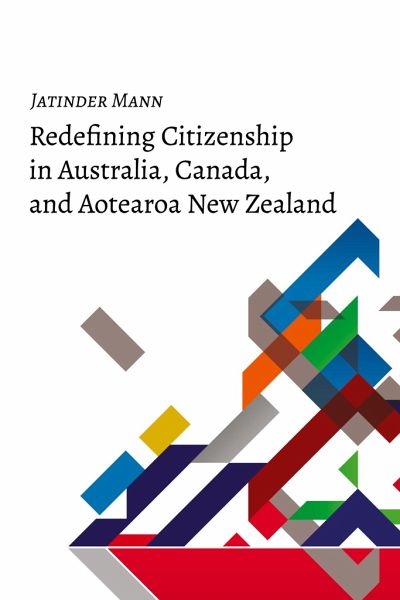
Redefining Citizenship in Australia, Canada, and Aotearoa New Zealand
Versandkostenfrei!
Versandfertig in 6-10 Tagen
97,05 €
inkl. MwSt.
Weitere Ausgaben:

PAYBACK Punkte
0 °P sammeln!
Adopting a political and legal perspective, Redefining Citizenship in Australia, Canada, and Aotearoa New Zealand undertakes a transnational study that examines the demise of Britishness as a defining feature of the conceptualisation of citizenship in Australia, Canada, and Aotearoa New Zealand and the impact that this historic shift has had on Indigenous and other ethnic groups in these states. During the 1950s and 1970s an ethnically based citizenship was transformed into a civic-based one (one based on rights and responsibilities). The major context in which this took place was the demise o...
Adopting a political and legal perspective, Redefining Citizenship in Australia, Canada, and Aotearoa New Zealand undertakes a transnational study that examines the demise of Britishness as a defining feature of the conceptualisation of citizenship in Australia, Canada, and Aotearoa New Zealand and the impact that this historic shift has had on Indigenous and other ethnic groups in these states. During the 1950s and 1970s an ethnically based citizenship was transformed into a civic-based one (one based on rights and responsibilities). The major context in which this took place was the demise of British race patriotism in Australia, English-speaking Canada, and Aotearoa New Zealand. Although the timing of this shift varied, Aboriginal groups and non-British ethnic groups were now incorporated, or appeared to be incorporated, into ideas of citizenship in all three nations. The development of citizenship in this period has traditionally been associated with immigration in Australia, Canada, and Aotearoa New Zealand. However, the historical origins of citizenship practices in all three countries have yet to be fully analysed. This is what Redefining Citizenship in Australia, Canada, and Aotearoa New Zealand does. The overarching question addressed by the book is: Why and how did the end of the British World lead to the redefinition of citizenship in Australia, Canada, and Aotearoa New Zealand between the 1950s and 1970s in regard to other ethnic and Indigenous groups? This book will be useful for history and politics courses, as well as specialised courses on citizenship and Indigenous studies.
'This meticulously researched book will be a must-read for scholars interested in national identity, political and legal history, and the history of indigenous resistance.'-Ann McGrath, Australian National University
'This book is a groundbreaking comparative study of Canada, Australia, and Aotearoa New Zealand and the shift from ethnic formsof British-based national identity to civic and potentially more inclusive varieties during the 1960s and 1970s...An impressive addition to the literature on citizenship studies, Indigenous peoples, and racialized peoples.'-David B. MacDonald, University of Guelph
'This book is essential reading for students of the political history of British settler states... and will be invaluable for citizenship specialists, especially with expertise in ethnic and indigenous studies, still debating whether the British World is being revived or is irretrievably lost.'-David Pearson, Victoria University of Wellington
'Mann does a fine job of illuminating and explaining the various legislative changes that have affected citizenship as a status and as a set of rights in Australia, Canada and Aotearoa New Zealand.'-Yasmeen Abu-Laban, University of Alberta
'Mann's valuable study enriches our understanding of how citizenship laws changed in response to the passing of the BritishWorld and gestures towards some of the motivations behind early Indigenous activism for distinctive citizenship rights.'-Harry Hobbs, University Technology Sydney
'At a time when the rights and responsibilities of citizenship are frequently in the news, this is a timely study across three of the five core Anglosphere countries...This comparative analysis of citizenship across three countries is an invaluable contribution to our understanding...A major strength is its analysis of the respective efforts made to be properly inclusive of indigenous populations.'-Patrick Coleman, Lincoln University
'The book is a window into current issues relevant to legislation and policies around citizenship in the twenty-first century and valuable for those interested in the history of citizenship in Commonwealth countries.'-Kim Rubenstein, University of Canberra
'This meticulously researched book will be a must-read for scholars interested in national identity, political and legal history, and the history of indigenous resistance.'-Ann McGrath, Australian National University
'This book is a groundbreaking comparative study of Canada, Australia, and Aotearoa New Zealand and the shift from ethnic formsof British-based national identity to civic and potentially more inclusive varieties during the 1960s and 1970s...An impressive addition to the literature on citizenship studies, Indigenous peoples, and racialized peoples.'-David B. MacDonald, University of Guelph
'This book is essential reading for students of the political history of British settler states... and will be invaluable for citizenship specialists, especially with expertise in ethnic and indigenous studies, still debating whether the British World is being revived or is irretrievably lost.'-David Pearson, Victoria University of Wellington
'Mann does a fine job of illuminating and explaining the various legislative changes that have affected citizenship as a status and as a set of rights in Australia, Canada and Aotearoa New Zealand.'-Yasmeen Abu-Laban, University of Alberta
'Mann's valuable study enriches our understanding of how citizenship laws changed in response to the passing of the BritishWorld and gestures towards some of the motivations behind early Indigenous activism for distinctive citizenship rights.'-Harry Hobbs, University Technology Sydney
'At a time when the rights and responsibilities of citizenship are frequently in the news, this is a timely study across three of the five core Anglosphere countries...This comparative analysis of citizenship across three countries is an invaluable contribution to our understanding...A major strength is its analysis of the respective efforts made to be properly inclusive of indigenous populations.'-Patrick Coleman, Lincoln University
'The book is a window into current issues relevant to legislation and policies around citizenship in the twenty-first century and valuable for those interested in the history of citizenship in Commonwealth countries.'-Kim Rubenstein, University of Canberra





